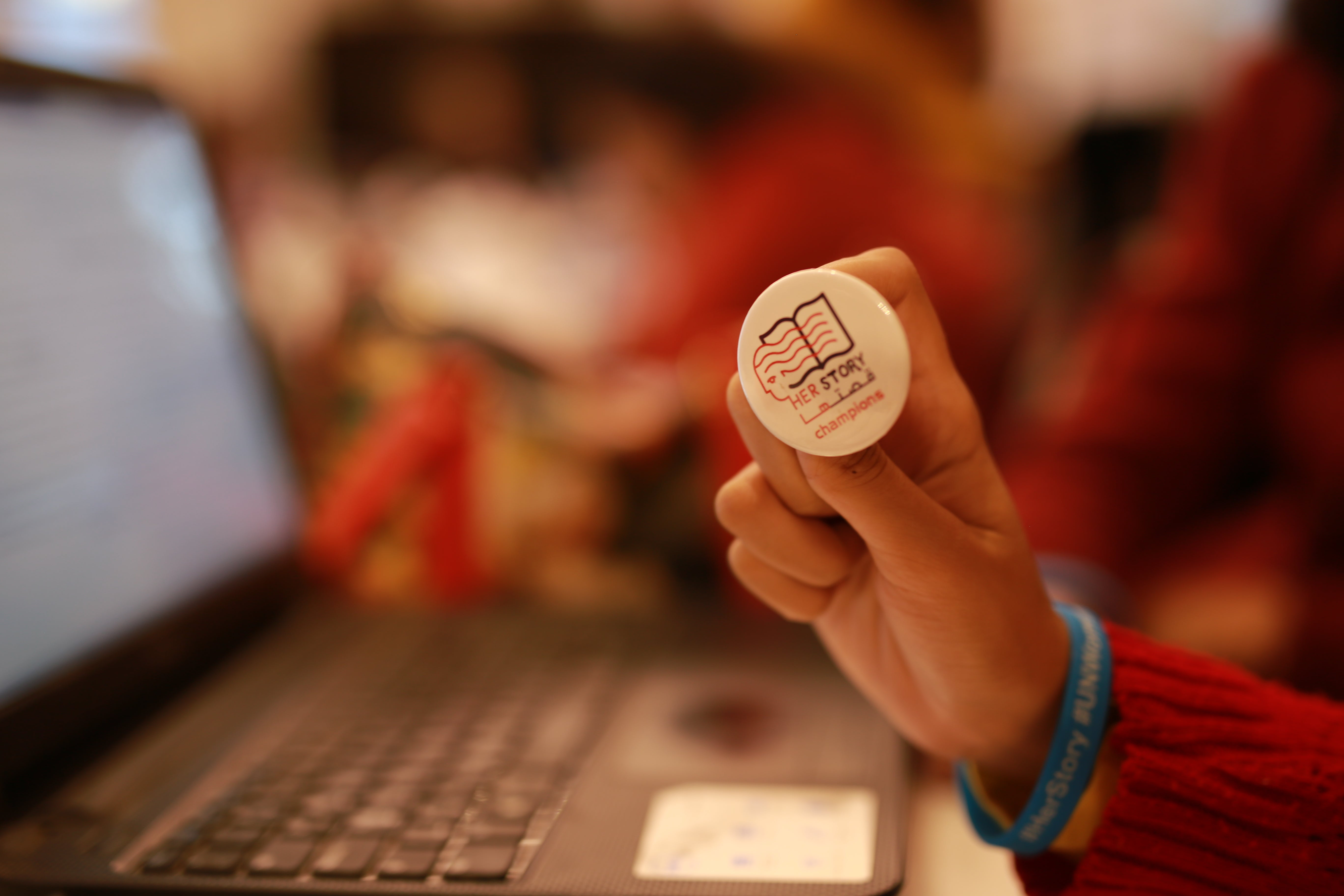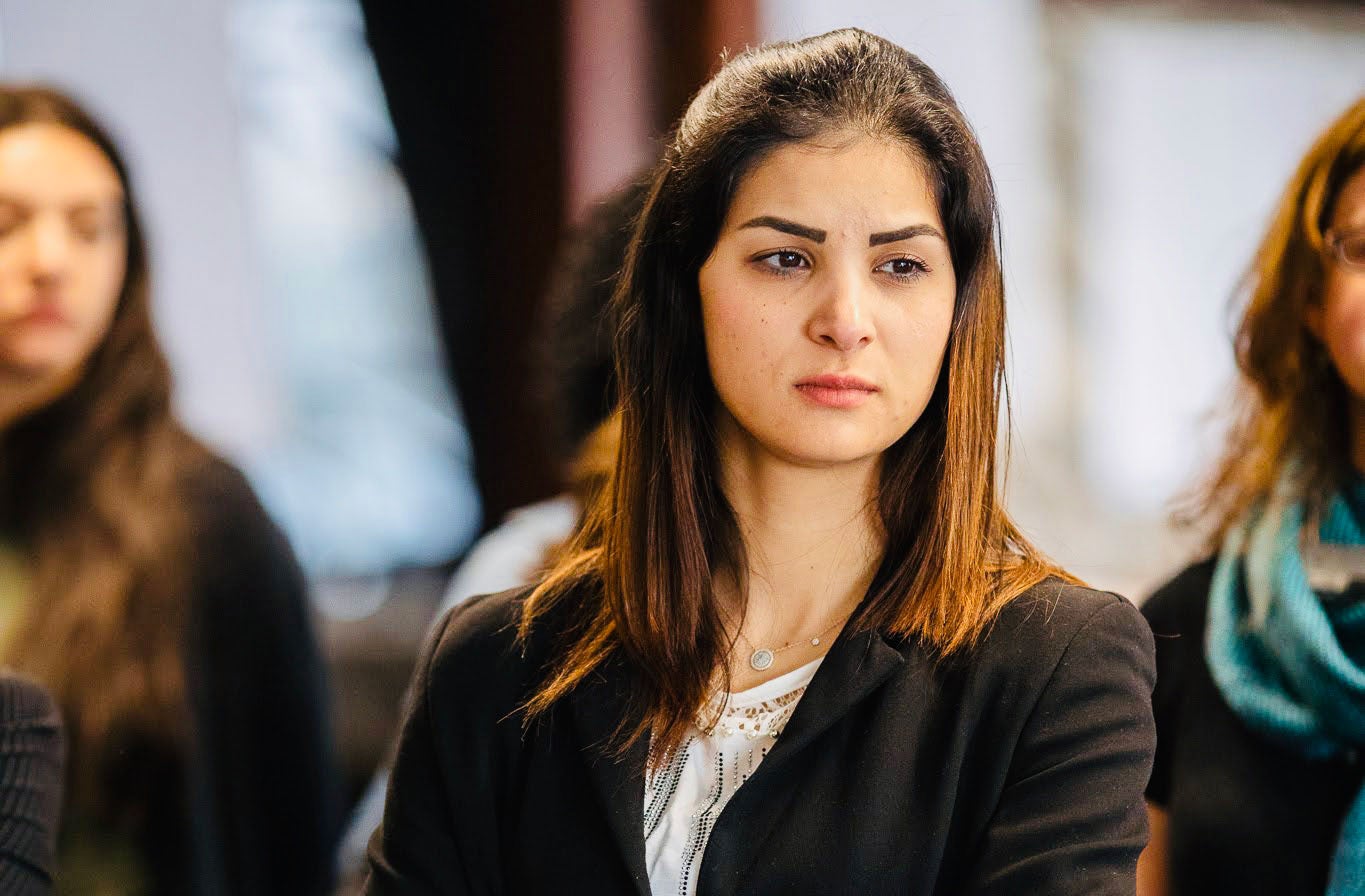Youth volunteers combat the COVID-19 epidemic of misinformation in the Arab States
Date:

As the COVID-19 pandemic continues, emerging evidence shows that underlying gender inequalities are exacerbated by this crisis. As observed in previous pandemics, women are -and will be- disproportionately affected in myriad ways, including by an increased incidence of domestic violence, loss of jobs and increased unpaid care burden. Previous experiences also indicate that failing to collect gender-disaggregated data can have a negative impact in the effectiveness of the response and recovery efforts.
Noting the lack of accurate, reliable and up-to-date information on the impact of COVID-19 particularly for women and girls in the region, the UN Women-supported HerStory network established a taskforce to monitor mass and social media, gather stories of the gender impact of the pandemic, and track occurrences of misinformation and harmful gender stereotyping.
Under this initiative, over 300 volunteers from across the Arab States region are documenting reports of misinformation as well as collecting news concerning the COVID-19 impact on women’s livelihoods, women in humanitarian contexts, violence against women and girls during emergencies and the contribution of women supporting emergency response.
In addition, volunteers are updating Arabic Wikipedia articles about COVID-19 to share simple and accurate information on how to prevent COVID-19 at the local level. Volunteers are also participating in training sessions to advocate on issues of gender equality and COVID-19, to counter fake news and dismantle harmful gender stereotypes in the media.
In a recent statement, UN Secretary-General Antonio Guterres noted that “Falsehoods are filling the airwaves. Wild conspiracy theories are infecting the Internet. Hatred is going viral, stigmatizing and vilifying people and groups. The world must unite against this disease, too.”
Moez Doraid, UN Women Regional Director a.i. for the Arab States praised the volunteers for their commitment to addressing misinformation and harmful stereotypes. “I am proud of these volunteers who are working to ensure easier access to clear and accurate information in Arabic on COVID-19 and its disproportionate impact on women and girls. The compilation and analysis of reported cases of discrimination and violence against women in the region in the context of COVID-19 will support all responsible actors to respond effectively”.
“Women are at the frontlines of containing the spread of the pandemic and highlighting their needs and leadership will strengthen the response to the crisis,” said Amani Aruri, a member of the UN Women-supported Gender Innovation Agora, who is based in the State of Palestine. “Unfortunately, the crisis is translating into an increased rate of violence against women in many forms: bullying, social stigmatizing, and gender stereotyping. We all must ensure the protection of women’s rights, this is everyone’s responsibility,” she added.

Since volunteers started monitoring media in mid-March, over 600 stories, articles and information pieces from news outlets and social media have been documented. It is expected that this material will be used to inform programme interventions to combat harmful stereotyping of women and men, and to address misinformation around COVID-19 and its impacts on women and girls.
Hebatullah saber Tawfik, a HerStory volunteer in Egypt expressed her concerns: “from all the news stories we collected in the Arab States, women were the most affected by the COVID-19 pandemic mostly by domestic violence which could lead to femicide. We need to stop and think about the importance of raising awareness of gender equality, granting women their basic rights and enforcing laws that allows them to live in a health and safe society.”
HerStory is a youth-led initiative, supported by the UN Women Regional Office for the Arab States (ROAS) and in 2016 to help close the gender knowledge gap on Arabic Wikipedia. This work is done by youth volunteers who produce, edit and disseminate articles about gender equality and women and girls’ rights, experiences and contributions in Arabic language. With volunteers present in 15 countries across the Arab States region, HerStory has created or translated more than 1,200 Wikipedia pages.
Read more about HerStory here.